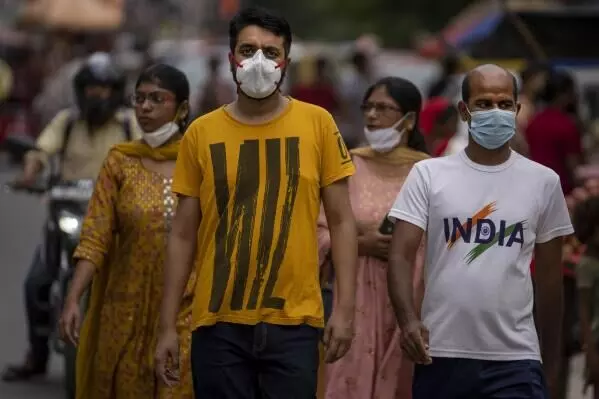India tops in TB cases, Covid obstructed control measures
Covid-19 disruptions to health services have impacted the diagnosis and treatment of TB
By Sulogna Mehta
Representational Image.
Hyderabad: For the last four years, Covid-19 has been in the limelight across the world for the pandemic it has caused. However, it has taken away attention and resources from another universal problem – Tuberculosis (TB).
As a result, in highly TB-endemic areas, resources have been used for addressing Covid-19 and pandemic-related health problems, which has undermined tuberculosis testing and treatment programmes. This has been a huge setback for global tuberculosis control efforts, especially for the progress of the World Health Organization’s ‘End TB Strategy targets by 2030.’
India topped TB cases in 2022
Recently, the WHO released the Global Tuberculosis (TB) Report 2023, highlighting the burden of TB worldwide in 2022. India accounted for the highest number of TB cases in the world, with 2.8 million TB cases, representing 27 per cent of the global burden.
On the occasion of World Tuberculosis Day on March 24, which has the theme, ‘Invest time to End TB and Save Lives,’ doctors talk about the challenges in tackling tuberculosis post-pandemic, especially multi-drug resistance TB, molecular diagnostics and tests for TB infection, preventive aspects etc.
How pandemic setback efforts in TB control
Covid-19 disruptions to health services have impacted the diagnosis and treatment of TB due to the lockdown, a spiralling increase of Covid cases and pandemic-related health problems.
“During the pandemic, patients with active and various forms of tuberculosis often did not get timely access to tuberculosis medications, counselling and follow-up, which impacted their adherence to treatment, especially medication,” said Dr P Raghavendra Reddy, consultant interventional pulmonologist and sleep medicine expert from Renova Hospitals, Hyderabad.
“This lapse also led to the development of multidrug-resistant (MDR) strains of tuberculosis and increased treatment failure rates, suffering and death. It has also increased the risk of tuberculosis continuing to pose multiple challenges and negatively impacted the already fragile health systems in countries with a high burden of tuberculosis,” added the pulmonologist.
How does tuberculosis affect health?
TB occurs due to the transmission of the bacilli through aerosols or droplets when an infected person sneezes, coughs or speaks aloud.
After infection with the TB bacteria (Mycobacterium tuberculosis), an individual might not exhibit any signs or symptoms of the disease immediately. There is still a 5 per cent to 20 per cent chance of developing the active symptomatic illness within 2 to 5 years of acquiring the pathogen. TB bacterium can remain inactive for a lifetime without causing disease. The symptoms are mainly constant cough along with fever, chills, fatigue, loss of weight and appetite.
Why India needs to control TB
India has the largest number of tuberculosis cases around the globe. The high incidence rate is seen in immune-compromised individuals such as HIV patients, patients with Diabetes mellitus, malnutrition, kidney-related diseases, post-transplant cases, SARS-CoV-2, patients with autoimmune diseases, and patients on cancer chemotherapy drugs regardless of their socio-economic class.
“Regulating TB has become a difficult task in a densely populated country like India due to latent TB infection in millions of Indians, which can reactivate at any point in future. The need of the hour is increasing testing capacity, active screening, implementation of strategies for easy identification of TB hotspot areas, and ensuring sustained drug supply for treatment with good strategy and planning of local and regional distribution and transportation systems to cater to the vulnerable high-risk population,” said Dr Raghavendra.
Dr KS Phaneendra Kumar, consultant pulmonologist, KIMS Icon Hospital, Vizag, said, “The recent years have seen an increase in drug-resistant TB. The disease is preventable and curable, but it still claims 4,100 lives every day and close to 27,000 people fall ill with it worldwide daily. Shorter TB treatment regimens, rapid molecular diagnostics and tests for TB infection, and other innovations and digital tools will lead to improvements in health outcomes and save millions of lives. Strengthening, funding communities, social protection, and ending stigma are also needed. Further, investments in research and innovation are vital to fast-track efforts to reach the end TB targets.”
India’s plan to eliminate TB
Some of India’s initiatives to eliminate TB include the National Strategic Plan (NSP) for Tuberculosis Elimination (2017-2025), the Nikshay Ecosystem (National TB information system), Nikshay Poshan Yojana (NPY- financial support), TB Harega Desh Jeetega Campaign.